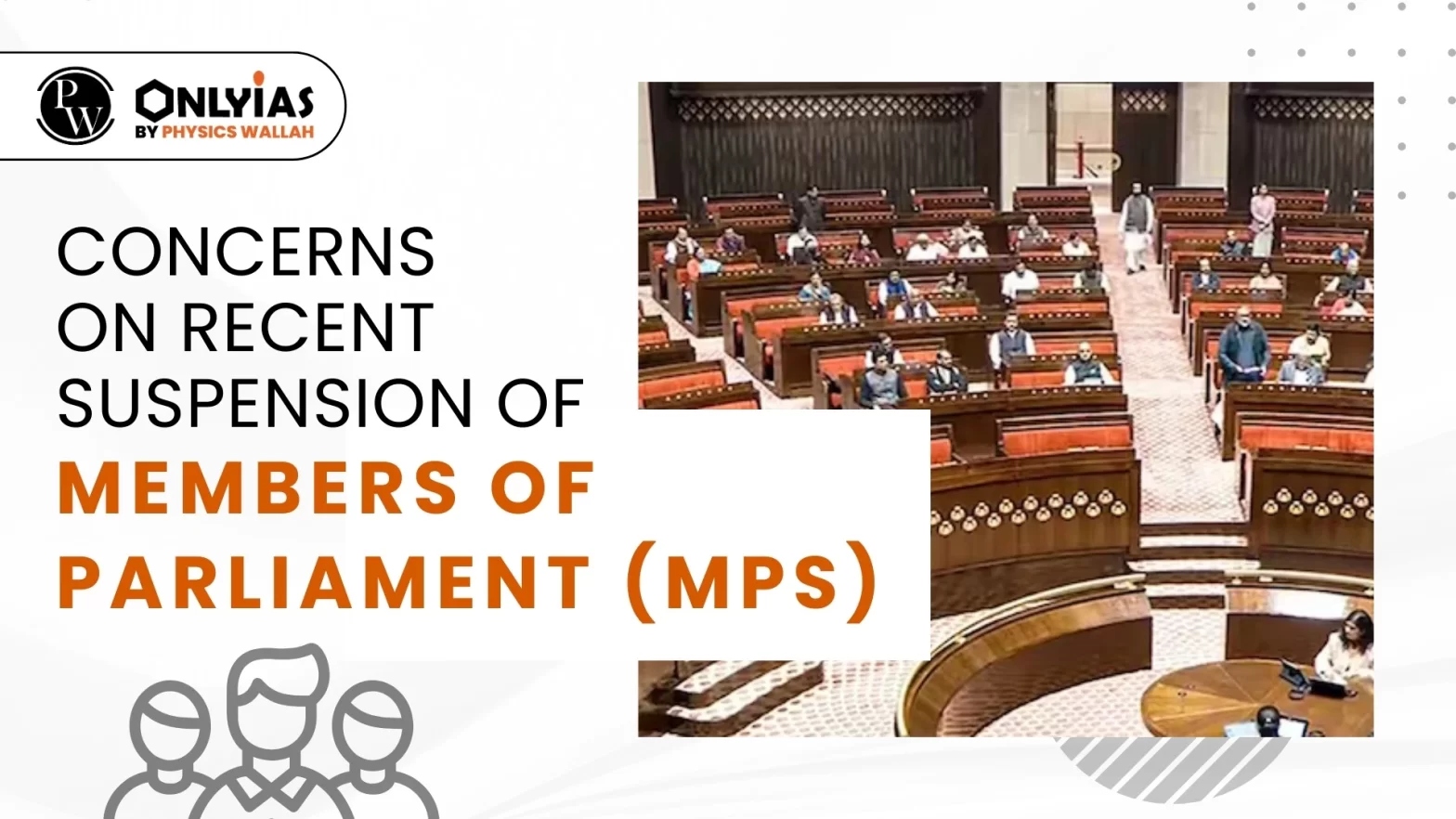Context: This article is based on an Editorial “Legislative decline: On government’s actions and a disregard for deliberative democracy” which was published in the Hindu. This article is expressing concerns over the denial of legislative debate that is adversely impacting on the Indian democratic structure and values.
| Relevancy for Mains: Implications of the recent suspension of Members of Parliament (MPs) on democracy, and the role of the Opposition in the parliamentary process. |
Rising Concerns over recent Suspension of Members of Parliament (MPs)
- Recently, a total of 92 Opposition MPs were suspended.
- Reason of Suspension: The MPs in both Houses were suspended for disrupting Parliamentary proceedings while protesting for a recent Parliament security breach.
- Earlier Experience: Till now, the highest number of MPs suspended in a single day was on March 15, 1989, when 63 Opposition members were suspended from Lok Sabha over tabling of the inquiry commission report on the assassination of former Prime Minister Indira Gandhi.
Role of opposition party in democracy
- To question the government of the day.
- To hold the government accountable to the public.
- Responsible for upholding the best interests of the people of the country (equally as of the Ruling party).
Such Actions by the Government raise a Question on India’s Democracy
- Use of Electoral Autocracy by V-Dem Institute: Such actions have compelled global democracy reports by research institutions such as V-Dem Institute to characterize India’s democracy as an “electoral autocracy”.
- Use of Partially Free by the U.S.-based Freedom House: Such actions have led the U.S.-based Freedom House, which measures civil and political liberties, to declare India as “partially free”.
- Adverse Impacts: The recent actions by the government such as the Suspension of Members of Parliament (MPs), and the use of the Unlawful Activities (Prevention) Act to indiscriminately target dissenters are adversely impacting democracy in India.
The Path Ahead
- Need of Debates and Deliberations: In a democracy, elected legislators debate and discuss issues of public import and seek solutions to issues that affect citizens.
- There is a need for healthy debates, the utilization of parliamentary and standing committees to delve into the issue, and for Bills and legislation to be discussed before any consideration.
- Need for a Powerful Opposition: To check the power of the ruling party and for mature democracy, an effective Opposition is desirable.
To read more on the Suspension of MPs click here
![]() 19 Dec 2023
19 Dec 2023

